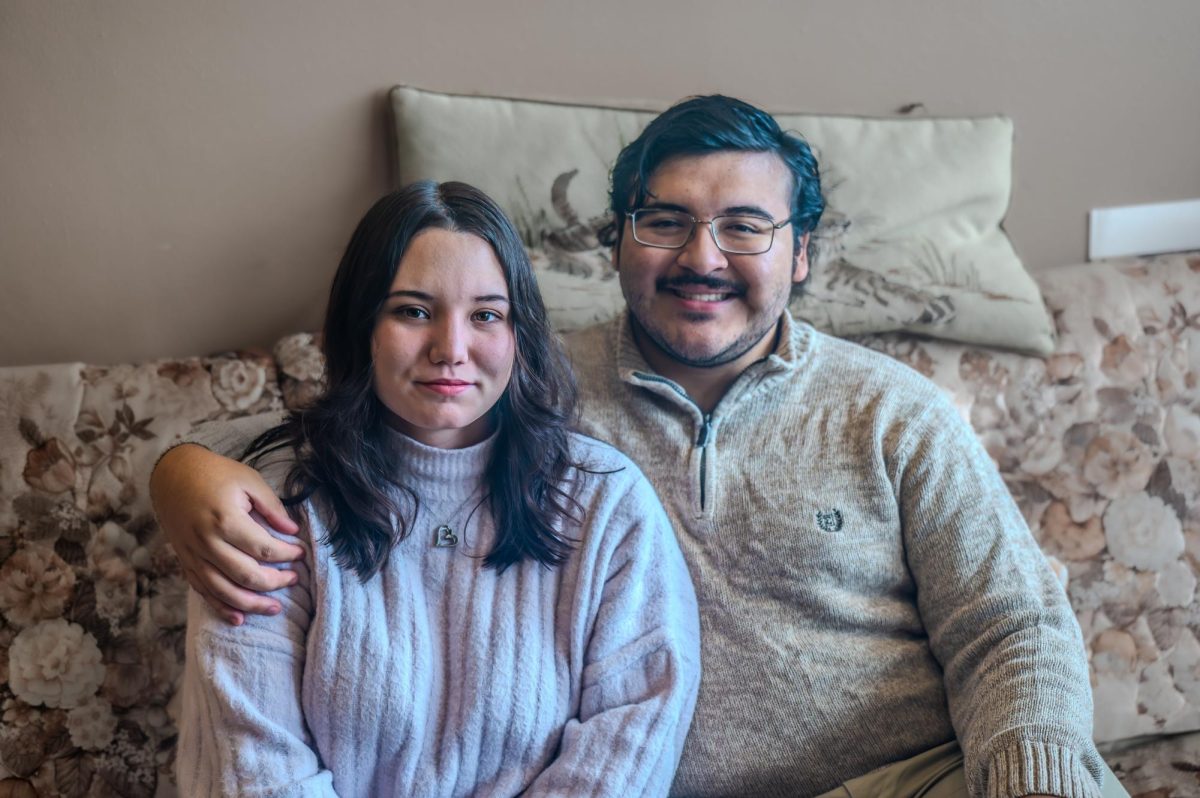Grinnellians know how controversial the subject of immigration is, and some have very passionate opinions about it. Mark Krikorian, Executive Director for the Center for Immigration Studies, may not have known just how passionate a response to expect when he spoke on campus Tuesday afternoon.
By far the most controversial parts of Krikorian’s lecture were his sections on assimilation and quotas. With a question and answer section that lasted nearly twice as long as his lecture, it was clear that Krikorian’s theories offended many.
Krikorian, an Armenian-American, is an anti-immigration activist. In his book. “The New Case Against Immigration, Both Legal and Illegal,” “Krikorian argues that although mass immigration … weakens our common national identity, limits opportunities for upward mobility, threatens our security and sovereignty, strains resources for social programs, and disrupts middle-class norms of behavior.” (http://www.cis.org/NewCase)
He supports capping legal immigration at 400,000 and limiting it to only families, the skilled or “Einsteins,” and those seeking asylum or refuge. Even though he does advocate humanitarian immigration, Krikorian supports drastically limiting the number of people who are granted asylum and refuge, or Temporary Protective Status (TPS), to only 50,000 people. He also asserted that refugees should be resettled in the United States only as a last resort.
Krikorian believes that those who immigrate to the United States should leave behind all of their customs, traditions, beliefs and psychological and emotional ties associated with their old country and adopt the American mentality and culture. He thinks that only full assimilation leads to patriotic solidarity in the community, which he says is essential for a national identity.
Krikorian dismissed supporting multiculturalism as something irrelevant to American society.
“People say that we need multiculturalism but they have no idea about their own culture and their own history,” Krikorian said. “You have to know who you are before you can appreciate other cultures in any meaningful way.”
He also said that one of the problems facing the United States is that the dichotomy between the collective “we” and the “others” is still an issue of race. Those who are included in the American community are those who are “not black,” such as people who are white, Asian and educated Latinos, and everyone else is considered black. This statement incited a negative response from students and faculty.
“Avery, did you know that I’m not considered American?” Gabby Mitchell ’13 asked me.
In the newly created Student Statement of Values, students voted to adopt community, communication and diversity as qualities that we regard as most important and will uphold. Krikorian’s ideals as discussed in his lecture were in direct contrast to those that we voted to advocate and maintain.
That Krikorian’s ideals and theories contrast sharply with those of this institution could not have been more clear, and this was part of the reason he was invited to engage in debate. Professor of History Victoria Brown and Professor of Anthropology Katya Gibel Mevorach both defended Grinnell’s ideals by disputing Krikorian’s beliefs of what it means to be American as well as the historical accuracy of his claims.
Though almost everyone who left his lecture felt frustrated, angry and offended, it was uplifting to see the way that students and staff stood up for our ideals together. Krikorian’s lecture sparked a number of great discussions about multiculturalism, equity, diversity and community as students gathered outside JRC 101 to continue the discussion and professors stayed to answer questions after the session ended.
In this way, even though Krikorian spoke of ideas on community and multiculturalism that are in stark contrast to those of Grinnell, his lecture succeed in bringing our community closer together and in sparking lively debate and reflection.




















































M.W. Faruque • Apr 30, 2011 at 2:35 am
Please discuss the anchor babies now staying outside USA in hardship?